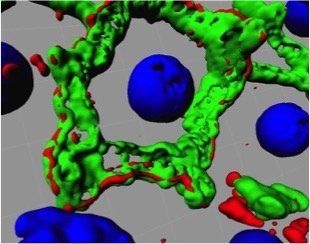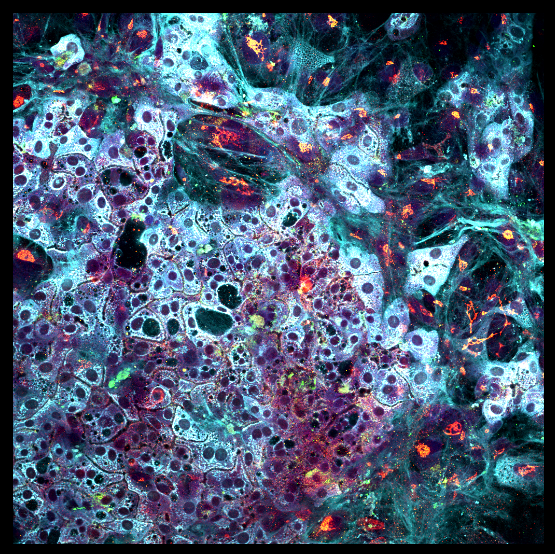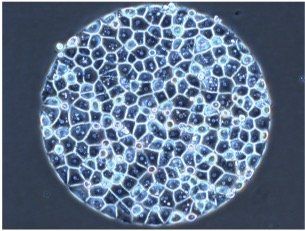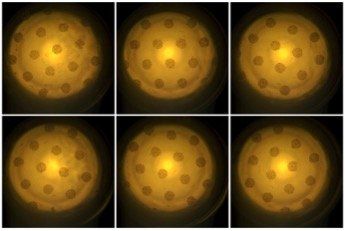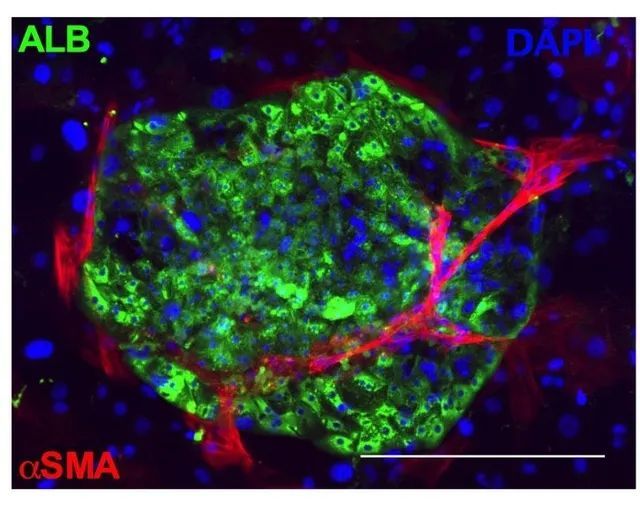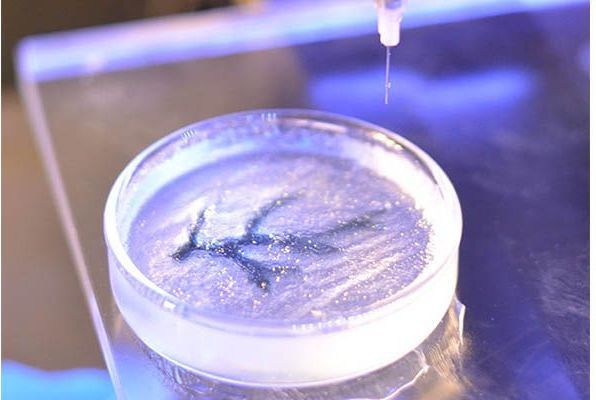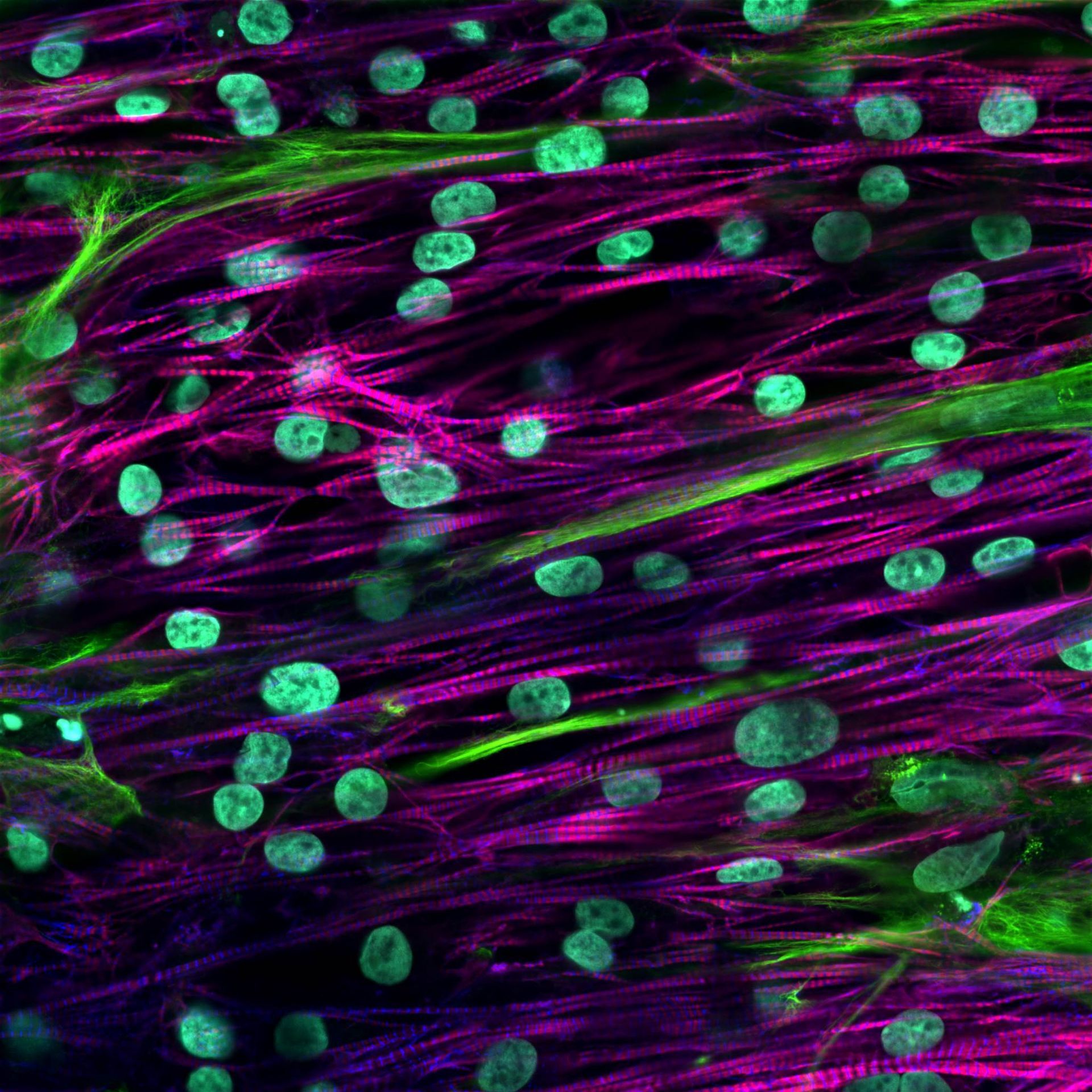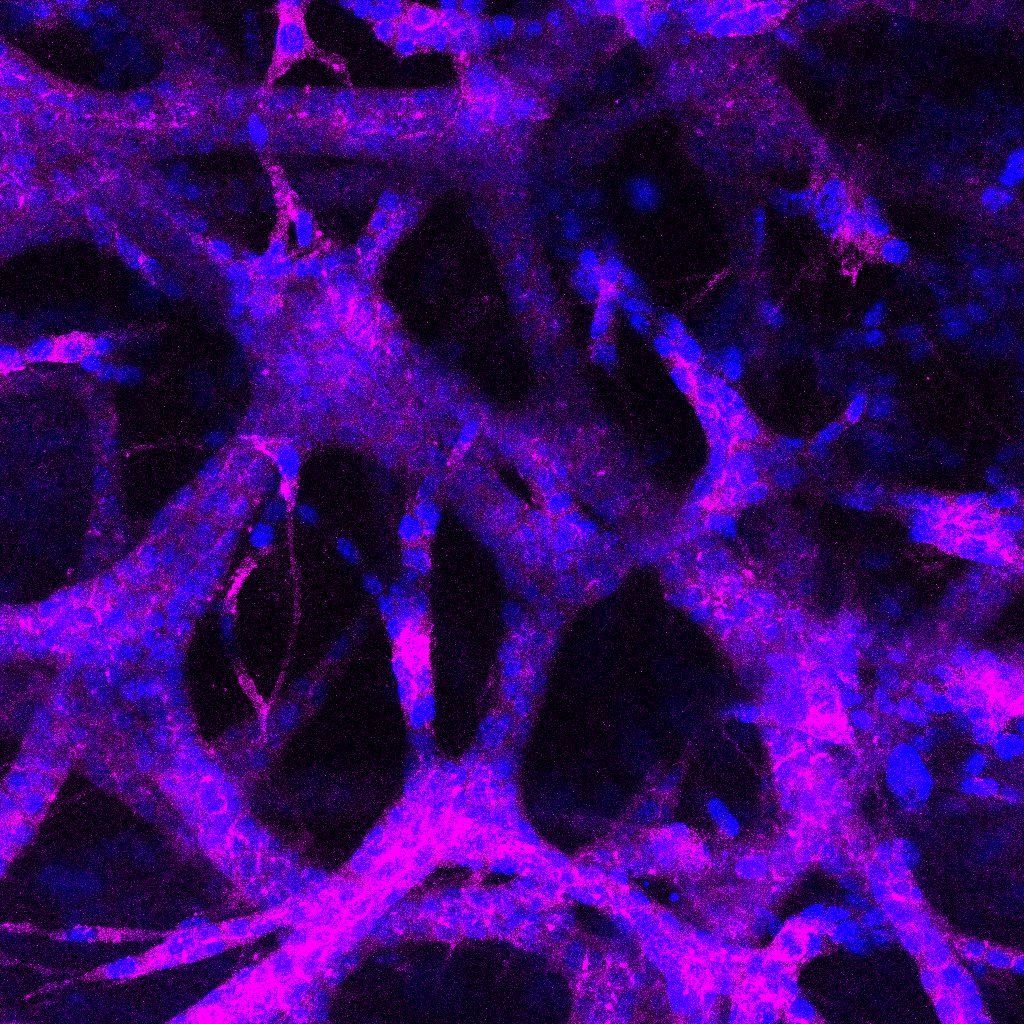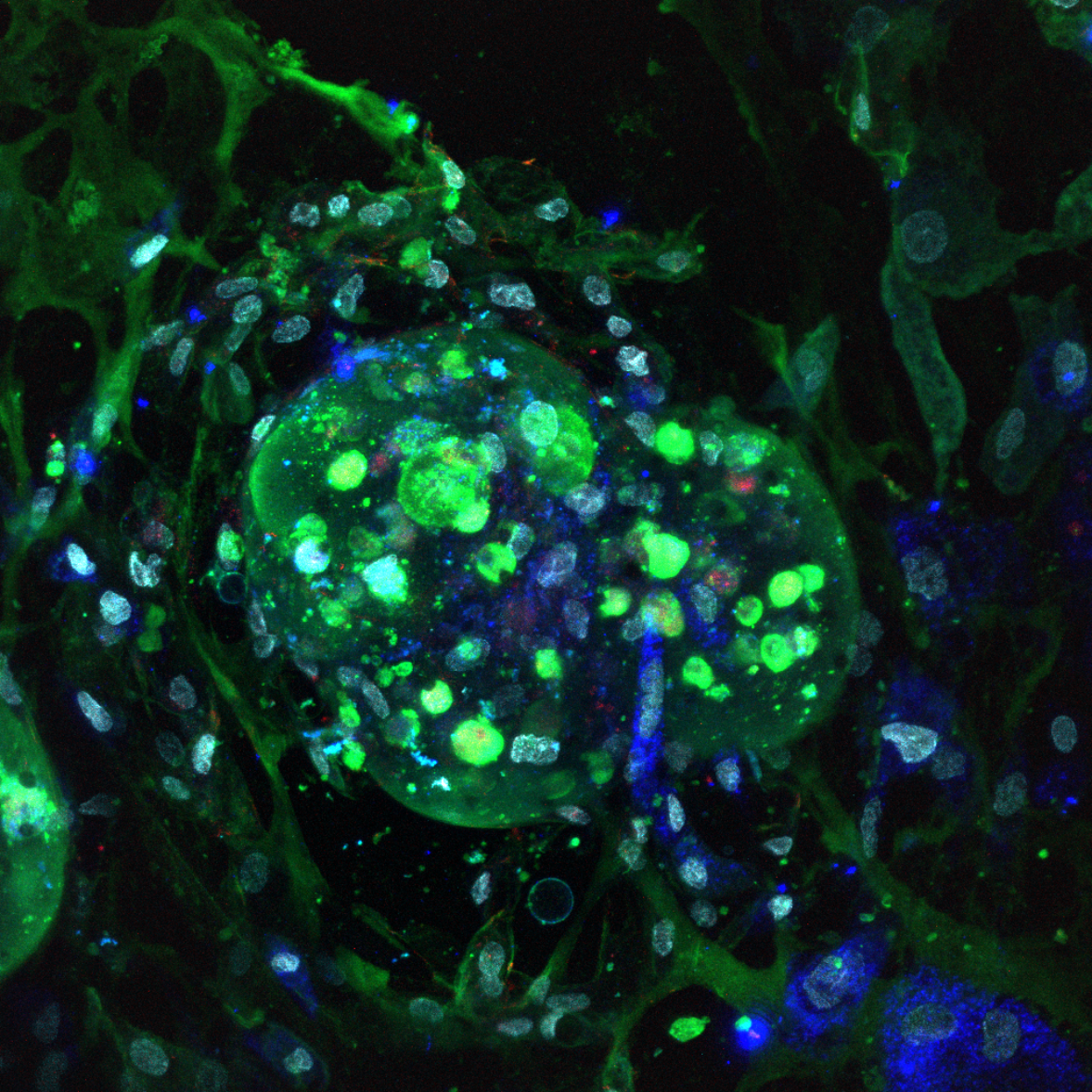Overall Research Themes and Infrastructure
The MTM lab develops and utilizes
microfabrication
tools, biomaterials,
and 3D bioprinting
to precisely engineer the
microenvironment around primary and stem cell-derived mammalian cells towards stabilizing their long-term
phenotype in vitro for applications in the following key areas:
- Drug development (e.g. drug metabolism/toxicity screening)
- Disease modeling for novel drug discovery
- Regenerative medicine (i.e. cell-based therapies)
Public Health Relevance: Tissues and cells can be utilized in long-term experiments to better understand disease mechanisms, improve the safety and efficacy profile of drugs, and enhance treatments for chronic diseases.
Lab Infrastructure: We occupy nearly 3000 sq ft of lab space at UIC and have state-of-the art equipment to carry out our research, such as a 5-laser automated confocal microscope with incubation chamber, 3 other epifluorescent microscopes, 7 biosafety cabinets, 6 incubators, multi-mode plate reader, qPCR machine, digital Western blotting machine, high performance computers, photoresist spin coater, UV exposure machine, oxygen plasma etcher, and more. Additionally, UIC has research cores with equipment such as electron microscopes, DNA sequencers, nanofabrication equipment, and much more. Lastly, through the Chicago Biomedical Consortium, we can access equipment at Northwestern University and University of Chicago.
Breakthroughs in Liver Tissue Engineering
The MTM Lab has made significant breakthroughs in engineering liver models for investigating drug-induced liver injury, metabolic-associated steatotic liver disease, alcoholic liver disease, hepatitis B virus infection, and regenerative medcine (cell-based therapies). We have several publications in these areas that are being actively cited in the field.
State-of-the-art Technologies
The MTM Lab develops and utilizes tools such as protein micropatterning, high-throughput extracellular matrix (ECM) microarrays, biomaterials, and microfluidic platforms to precisely control the microenvironment of both primary and stem cell-derived cells in various culture formats.
Our engineered tissues mimic key aspects of diseases in vitro and help elucidate underlying molecular mechanisms of disease progression as a function of cell-cell, cell-extracellular matrix, and cell-soluble factor interactions.
We leverage 3D bioprinting to develop human tissue surrogates that have multiple integrated compartments as in the body. Such tissue surrogates have applications in regenerative medicine for transplantation into humans who are suffering from organ failure.
Engineering Multiple Types of Tissues
We also apply our expertise to stem cell-derived cardiomyocytes (heart) to study the underlying genetic determinants of atrial fibrillation and develop a drug screening platform for this disease in close collaboration with leading cardiologists. We are also engineering in vitro models of the intestine, placenta, and the brain for various applications.
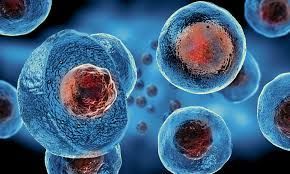
Commercial Translation and Funding
Dr. Khetani, MTM lab director, co-founded Hepregen Corporation (now part of BioIVT, Inc.) in 2008 and directed research and development at the company until 2011 to commercialize some of his previous liver inventions. Today, these liver models continue to make a positive impact in the marketplace via use by pharmaceutical/biotech industry.
Our more recent culture platforms have been successfully translated to the commercial space through licensing of issued and pending patents to companies.
We are well funded through the National Institutes of Health, National Science Foundation, the Center for Advanced Manufacturing of Integrated Microfluidics (CADMIM), and the pharmaceutical/biotech industry to pursue the research directions above.
Long Term Goals of the MTMLab
Disseminate
Disseminate our engineered platforms to the wider academic and pharmaceutical communities for use in drug screening, disease modeling, and cell-based therapies (regenerative medicine).
Discover
Make fundamental discoveries into how underlying genetics and cell-microenvironment interactions dictate worsening outcomes of several major diseases (e.g., alcoholic liver disease, metabolic-associated steatotic liver disease, hepatitis B viral infection, and atrial fibrillation) in different patient populations.

